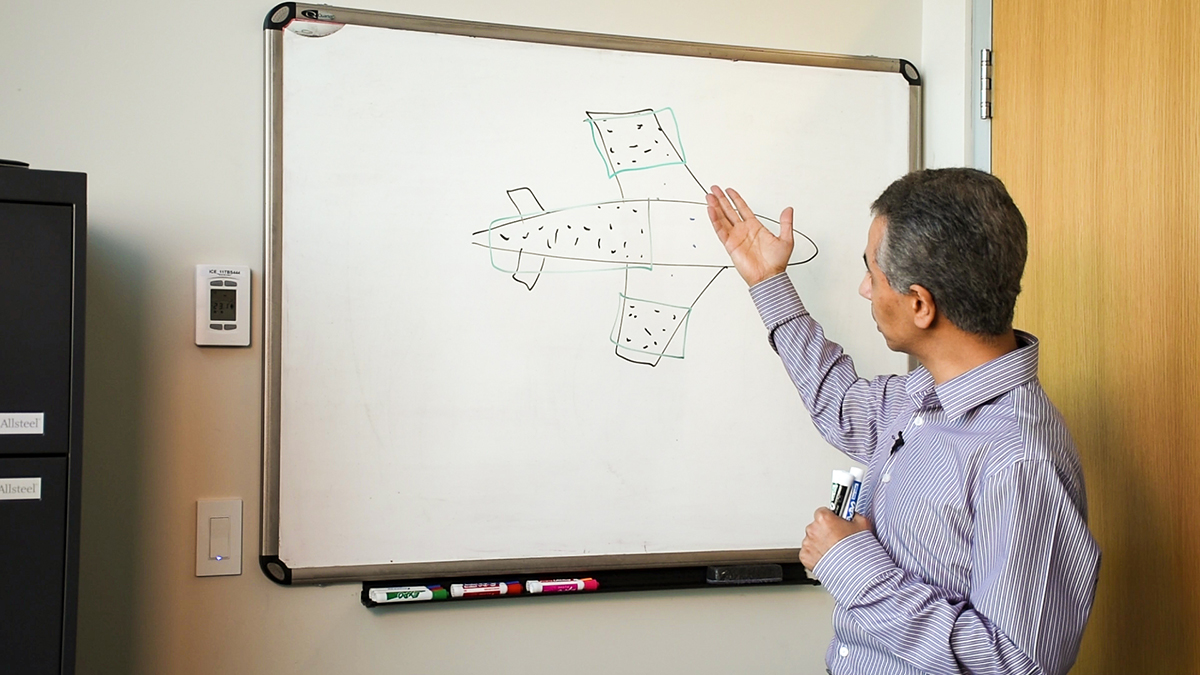Teaching Abstract Concepts with Dr. Masoud Ardakani
Applying inductive concept teaching and drawing on students' prior knowledge, Dr. Ardakani teaches abstract concepts by first presenting concrete examples of the new concept, and then introducing the concept and its related equations.
"Let's start with some simple examples, things that students can do based on existing knowledge. And then, after these examples, we just say, 'Oh, by the way, this has a name."
-Masoud Ardakani
What Inspires You In Your Teaching?
My teaching philosophy is based on four main assumptions about how people learn:
P1. People learn best by building relationships between new information and their existing knowledge. A well designed lecture should build this relationship.
P2. Interest is essential for learning and can be gained by sparking curiosity in the students and by presenting links to current industry and technology as well as history.
P3. People learn best when they are active participants in the learning process (learning by doing instead of learning by listening).
P4. The learning process requires a safe environment. Students should be challenged, but not threatened.
To help my students form a strong relationship between new and existing knowledge (P1), over the past 10 years, I have been working on a technique that I call "Example before Concept". The main idea is that examples should precede formal definitions and mathematical derivations. Before-concept examples serve the purpose of establishing a foundation for the new theory on students' existing knowledge and/or intuition. Rigorous definitions can now be effectively absorbed by students. In fact, in many cases, the students participate in formulating these new definitions (P3) and in a way they will own the new concept. Students who own an idea are more curious about its full potentials and more interested in its development (P2). Further examples that expand and conclude the new concepts can now be quite challenging (P4).
Another technique that I follow to increase students' involvement in the learning process is weekly quizzes. Through weekly quizzes, I ensure that students are learning by doing (P3) and that they are on top of the material for effectively participating in my "Example before Concept" practice (P1). To enrich their learning by doing, I have designed a significant body of extra problems that I share with students. Some of these problems are designed to take students step by step through the material and some take their knowledge to the next level.
Considering the heavy load of our students, adding weekly quizzes can stress students. To avoid this, I share highlights of my teaching philosophy with my student and explain why every component of the course is there, and how it helps us achieve our teaching/learning goals (P4). I also try to maintain a friendly relation with my student to indirectly help them feel safer. In all my classes, I perform a midterm teaching evaluation to collect students' feedback on my teaching. While the main purpose of this practice is to improve my teaching, it also helps students feel safe. I discuss the results of the midterm evaluations with them and wherever needed, I adjust my teaching accordingly. If I do not agree with some of the suggestions, I do explain my reasons. Over the past 10 years, I have learned a lot from students' feedback and I am sure I will continue to learn from them in the future.

"Now students are very well connected to the idea because they're part of the formation of this idea. […] They actually see the next step, sometimes even before I tell them what the next step is."
-Masoud Ardakani
About Dr. Masoud Ardakani
Masoud Ardakani received the B.Sc. degree from Isfahan University of Technology in 1994, the M.Sc. degree from Tehran University in 1997, and the Ph.D. degree from the University of Toronto in 2004, all in electrical engineering. He was a Postdoctoral fellow at the University of Toronto from 2004 to 2005. In 2005, he joined the University of Alberta, where he is currently a Professor of Electrical and Computer Engineering. His research interests are in the general area of information theory. Dr. Ardakani serves as an Associate Editor for the IEEE Transactions on Communications and has served as an Associate Editor for the IEEE Transactions on Wireless Communications and as a senior editor for the IEEE Communication Letters.
Awards
Dr. Ardakani is the winner of several prestigious research and teaching awards, including the Alberta Ingenuity New Faculty Award and the Rutherford Award for Excellence in Undergraduate Teaching.
Want to learn more about teaching concepts?
Amin, T. G., & Levrini, O.(Eds.). (2018). Converging perspectives on conceptual change: Mapping an emerging paradigm in the learning sciences. New York: Routledge.
Vosniadou, S. (Ed.) (2013). International handbook of research on conceptual change. New York: Routledge.
Wiggins, G., & McTighe, J. (2005). Understanding by design (2nd ed.). Alexandria, VA: Association for Supervision and Curriculum Development.
Teaching for Conceptual Understanding